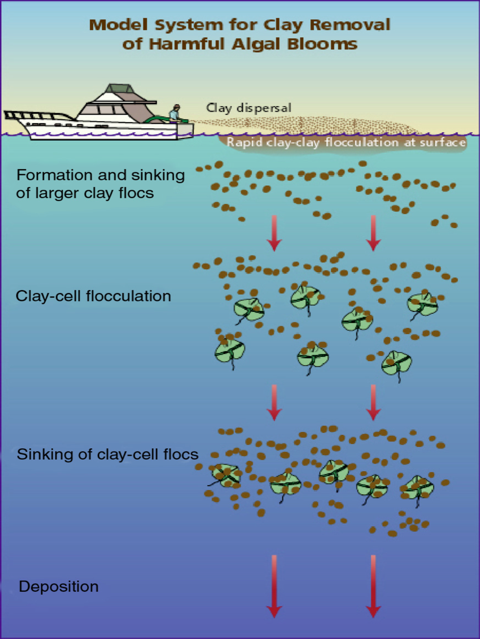New project: mitigation of red tide in Florida
 The Anderson Lab is launching a new project in response to this year’s record red tide events in Florida. In August, a state of emergency was declared due to a massive coastal bloom of the toxic dinoflagellate Karenia brevis. This event is responsible for creating widespread fish kills, causing respiratory distress in coastal inhabitants and visitors, and costing millions of dollars in economic loss for Florida communities.
The Anderson Lab is launching a new project in response to this year’s record red tide events in Florida. In August, a state of emergency was declared due to a massive coastal bloom of the toxic dinoflagellate Karenia brevis. This event is responsible for creating widespread fish kills, causing respiratory distress in coastal inhabitants and visitors, and costing millions of dollars in economic loss for Florida communities.
We will test a clay flocculation technique widely used in China and Korea to mitigate red tide events. This method involves dispersing clay in the water which adheres to the toxic algae and inhibits swimming capabilities, effectively causing it to fall from the water column. Testing will be conducted in the laboratory and in a pilot-scale field study, with the goal of determining effectiveness and monitoring environmental impacts. Any expansion of the program to larger areas in Florida would only occur once data are collected and analyzed from these small control applications. Learn more here.